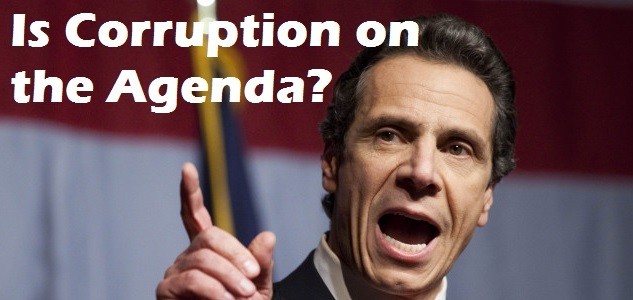New York Governor Cuomo under fire and now faces questions as corruption unit denies he interfered in work | Democracy, elections, and voting
Moreland Commission co-chairs: Gov. Cuomo never interfered
Repost Video News
The co-chairs of the Moreland Commission to Investigate Public Corruption told NewsChannel 13 there is no truth to published reports claiming Gov. Andrew Cuomo and his staff tried to steer the Commission away from political allies. On July 2, 2013, Governor Andrew M. Cuomo appointed the “Commission to Investigate Public Corruption” under the Moreland Act and Executive Law Section 63(8) to probe systemic corruption and the appearance of such corruption in state government, political campaigns and elections in New York State.
Attorney General Eric Schneiderman will appoint the members of the Commission as Deputy Attorneys General giving the Commission broad investigative authority to probe matters that “involve public peace, public safety and public justice”.
The Commission will have the power to issue subpoenas and examine witnesses under oath. They will be tasked with among things, reviewing the adequacy of existing state laws, regulations and procedures involving unethical and unlawful misconduct by public officials and the electoral process and campaign finance laws. They will also examine whether existing laws and regulations have been fairly and vigorously enforced and what changes must be made to such enforcement. The Commission is directed to make recommendations to toughen and improve existing laws and procedures.
Areas where the Commission will focus its investigation include but are not limited to:
- Criminal statutes for corruption and misconduct by public officials, such as bribery laws;
- Campaign financing including but not limited to contribution limits and other restrictions; disclosure of third-party contributions and expenditures and the effectiveness of existing campaign finance laws;
- Compliance of outside organizations and persons with existing lobbying laws, including but not limited to organizations engaged in lobbying and other efforts to influence public policies and elections and the effectiveness of such laws;
- Adequacy and enforcement of the State’s election laws and electoral process including the structure and composition of the State and County Boards of Elections, the Board of Elections’ enforcement and the effectiveness of and compliance with existing election laws.
The Commission is comprised of 3 co-chairs and 22 members. It also includes 1 Special Counsel and 3 Special Advisors.
The Commission will issue a preliminary report by December 1, 2013 and any additional report(s) by January 1, 2015.

Leave a Reply